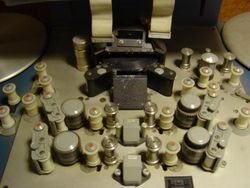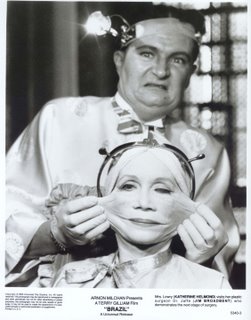
Spirited discussion in last class about whether technology limits or expands our possibilities. Obviously technology has made certain aspects of our lives easier and it has allowed for a lot of entertainment value (both time wasting and enlightening). I fall right down the middle of this debate: not believing in an omnipotent technological conspiracy theory that technology and its elitist inventors and controllers are intent on completely subduing individual autonomy for their selfish needs of power and greed (Bill Gates is not the Devil incarnate); on the other hand I am not so naive as to believe that there's not some complex relationships at work out there that seek to do grave injustices and harm. The human mind is curious and inventive and it will never stop evolving the technological enterprise.
Personally, I make choices everyday. For example; not to have a cell phone, to limit TV use, to read what I want, talk to whom ever I want, eat what I want, live where I want, etc. Some of these choices are the lesser of two evils, some are choices made out of economic concerns, but they still count as having made a choice and it is the ability to choose that defines our individualism. Individuals will continue to use technology for what ever means they see fit - and Society, through it's political will, will attempt to control and counteract for the benefit of its citizens. Ultimatly control of our lives is in our hands - choices we make are not limited by technology and it's so-called evil agenda. As was pointed out in class, the example of the Mennonites or community cooperatives that passively control their involvment with technology, it is possible to be more in control of one's life by exercising choice - which we are free to do as long as it doesn't impinge on another's freedoms (in some countries that implies religious freedoms as well).
I find Noble's dire message that "unrestrained technological development...allowed to proceed apace, without serious scrutiny or oversight-without reason...[without] [p]leas for some rationality, for reflection about pace and purpose, for sober assessment of costs and benefits - for evidence even of economic value, much less larger social gains" is a worthy sentiment and one that watch-dogs, whistle-blowers, police, politicians, capitalists and criminals alike will forever be debating. One must keep in mind the modus operandi of technological advances and ask the very broad question, Who does it really benefit? and the very personal question, Do I really need it?
Michael


